What are we feeding and sustaining?
What are we feeding and sustaining? How can a specific project, partnership, or engagement feed into justice and repair? Do our actions today carry prospects for peace and tranquility in the longer-range future?

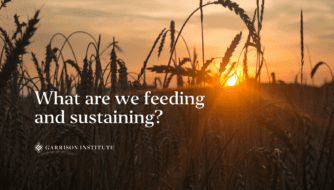
What are we feeding and sustaining? How can a specific project, partnership, or engagement feed into justice and repair? Do our actions today carry prospects for peace and tranquility in the longer-range future?
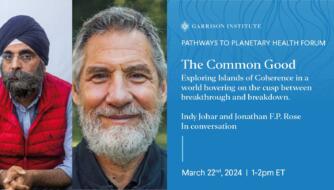
On Friday, March 22, 2024, Indy Johar joined Garrison Institute co-founder Jonathan F. P. Rose for a conversation hosted by the Pathways to Planetary Health initiative. Indy is co-founder of Dark Matter Labs and of the award-winning architecture and urban practice Architecture00. He is on the advisory board for the Future Observatory and is part of the committee for the London Festival of…
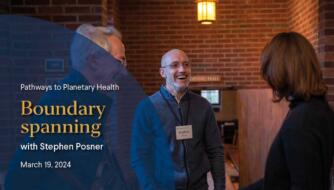
In a recent podcast episode, Stephen Posner, Director of Pathways to Planetary Health at the Garrison Institute, joined a conversation with Michael Cox, Professor of Environmental Studies at Dartmouth College in New Hampshire, USA, who studies and teaches about the commons – a broad concept that reflects a whole, integrated world and that refers to relationships among places, communities, resources,…
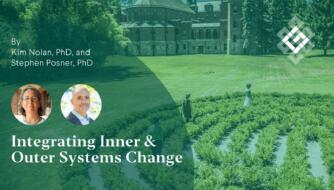
We cannot solve complex sustainability issues using the approaches we’ve employed in the past. We need different approaches – and different mindsets – than those we’ve drawn on thus far.
These approaches and mindsets emerge from looking inward at the same time as we make outer change – from reflecting deeply on what’s here now as we grapple with complex and persistent predicaments like climate change and nature loss, social justice, trauma, and exploitative economic systems.
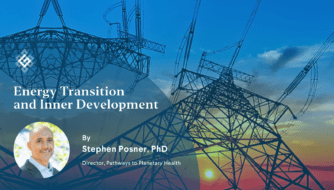
The Vatican published Laudate Deum in early October, written by Pope Francis and titled “To All People of Good Will on the Climate Crisis.” This letter builds on Laudato Si, the Pope’s 2015 Encyclical describing integral ecology – a concept that flows from recognizing interconnectedness and the importance of relationships. Laudate Deum comes ahead of the UN COP28 climate conference scheduled to begin tomorrow in Dubai – Pope Francis is calling for a “decisive acceleration of energy transition.”
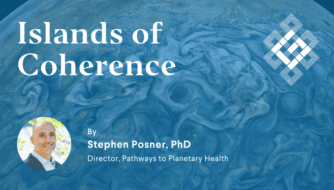
““When a complex system is far from equilibrium, small islands of coherence in a sea of chaos have the capacity to shift the entire system to a higher order.” Quote by Ilya Prigogine, Nobel Prize-winning chemist. From March 15 to 17, 2023, a group of about 80 leaders gathered at the Garrison Institute for a Pathways to Planetary Health Symposium focused on the commons. Systems change was a recurrent theme at this meeting. One participant mentioned Ilya Prigogine’s quote above about “islands of coherence” as a way to think about shifting social systems.
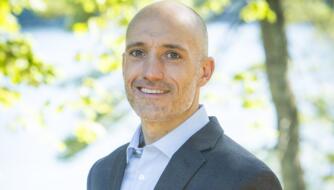
The Garrison Institute is pleased to announce the appointment of Stephen Posner as the new Director of our Pathways to Planetary Health initiative.
“We are thrilled to have Stephen on board and look forward to working together towards our shared goal of promoting the health and well-being of our planet and all its inhabitants,” says Karen Doyle Grossman, the new executive director of the Institute. “His expertise and experience in the field of planetary health will be invaluable in advancing our mission, and we are excited to see the positive impact that we’ll all make together.”
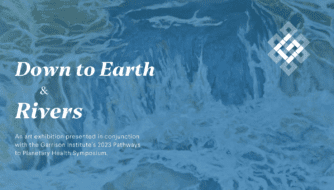
The Garrison Institute was honored to welcome the work of Paz Perlman and artists from the Think About Water collective into the ensemble of contributors at our recent Pathways to Planetary Health Symposium in March. These critically acclaimed artists are known for their powerful bodies of work that grapple with today’s most profound societal and environmental challenges.